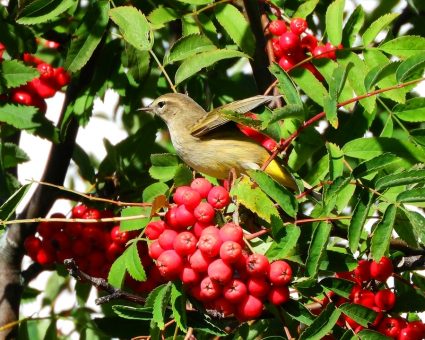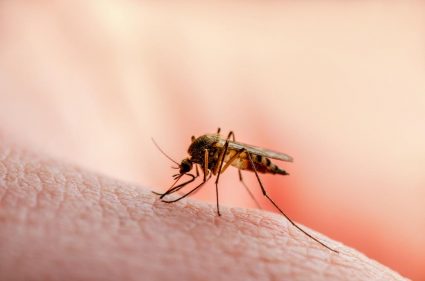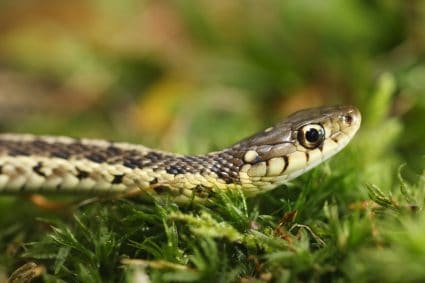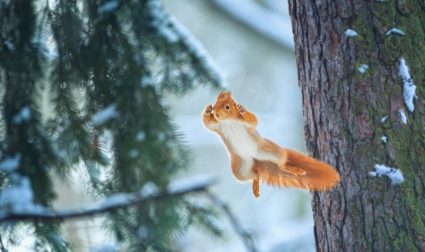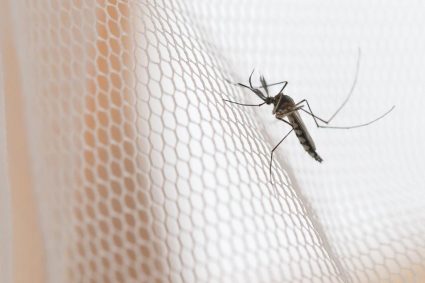
Skunks are one of the most recognizable creatures in the animal kingdom, thanks to their distinctive black-and-white striped coats and their infamous stench. Yet, despite their notoriety, many aspects of their behavior remain a mystery to most people. One question that often arises is, “Why do skunks come out at night?”
Skunks come out at night primarily because they are nocturnal animals. This behavior allows them to avoid predators and find food more efficiently. Their diet changes according to prey availability and the season, and being active at night reduces their predation risk. Their well-developed senses of smell and hearing, along with a higher sensitivity to changes in light intensity, help them navigate and forage in the dark.
Skunks: The Nocturnal Mammals
Skunks are primarily nocturnal animals, meaning they are most active during the night. This behavior is an adaptation that allows them to avoid predators and find food more efficiently. Skunks have poor eyesight, but their other senses, such as smell and hearing, are well-developed, which helps them navigate and forage in the dark. They also have a higher sensitivity to changes in light intensity, making them suited to low light conditions.
Feeding Habits and Diet Preferences
Skunks are opportunistic omnivores, feeding on a wide variety of plant and animal materials. Their diet changes according to prey availability and the season. During warmer months, skunks feed on insects, worms, and crayfish, while in the winter, they consume berries, bird eggs, and rodents.
Being active at night helps skunks reduce predation risk as they are less visible to predators. Their nocturnal nature also allows them to share habitats with other animals, avoiding conflicts by hunting at different times. Skunks are beneficial to farmers, gardeners, and landowners because they feed on large numbers of agricultural and garden pests.
Interaction With Other Animals and Their Environment
Skunks are generally solitary animals, but they may socialize with other skunks to share burrows in the winter to keep warm or during mating season. Skunks do not hibernate, but they can enter a state of torpor, a deep sleep from which they occasionally awake.
In terms of their environment, skunks may seek shelter under porches or in crawl spaces beneath houses, where they can gain access through broken boards or large holes. They are generally not sociable and may den together in winter for warmth, but they rarely stay at the same den site for more than a few days.
Threats and Protection
Skunks face various dangers and threats during the night, such as predators, human encounters, and potential accidents. Their primary predators are great horned owls, which have a weak sense of smell and can prey on skunks without being affected by their spray. Skunks may also encounter humans or pets, which can lead to conflicts and potential spraying incidents.
To protect themselves, skunks rely on their powerful defense mechanism: spraying a foul-smelling liquid from their scent glands. They use this defense only when they or their young are threatened and cannot escape. Before spraying, skunks usually display warning signs, such as stamping their front feet, raising their tail, hissing, and making short forward charges.
Mitigating Human-Skunk Interactions
To mitigate any negative impact of skunk interactions, humans can take several preventive measures: maintain cleanliness around your property by securing garbage cans, removing pet food, and cleaning up fallen fruits and vegetables; modify the habitat around your home to make it less attractive to skunks; use extra caution if you encounter a skunk during the day or one that is extremely aggressive; and respect their warning signs to avoid provoking them.
In conclusion, skunks come out at night primarily due to their nocturnal nature, which is influenced by their feeding habits, predator avoidance, and environmental conditions. Understanding their behavior can help humans coexist with these creatures more harmoniously.
Frequently Asked Questions
What is the lifespan of a skunk?
Skunks typically live up to 7 years in the wild, but they can live up to 10 years in captivity.
How far can a skunk spray?
Skunks can spray their defensive scent up to 10 feet away. However, under ideal conditions, the spray can reach targets as far as 20 feet away.
Are skunks dangerous to humans?
Skunks are not inherently dangerous to humans. However, they can carry rabies and other diseases, so it is important to avoid close contact. Also, their spray can cause temporary blindness and a burning sensation if it gets into your eyes.
Do skunks climb trees?
Skunks are not adept climbers, preferring to stay on the ground. However, some species of skunks, such as the spotted skunk, can climb trees when necessary, but this is not a common behavior.
What are some natural predators of skunks?
Skunks have a few natural predators, including great horned owls, coyotes, and bobcats. However, their distinctive coloration and potent spray provide them with effective protection against most predators.
Can skunks swim?
Yes, skunks can swim if needed, but they generally prefer to stay on dry land. They are not known for their swimming abilities and tend to avoid water unless necessary.

